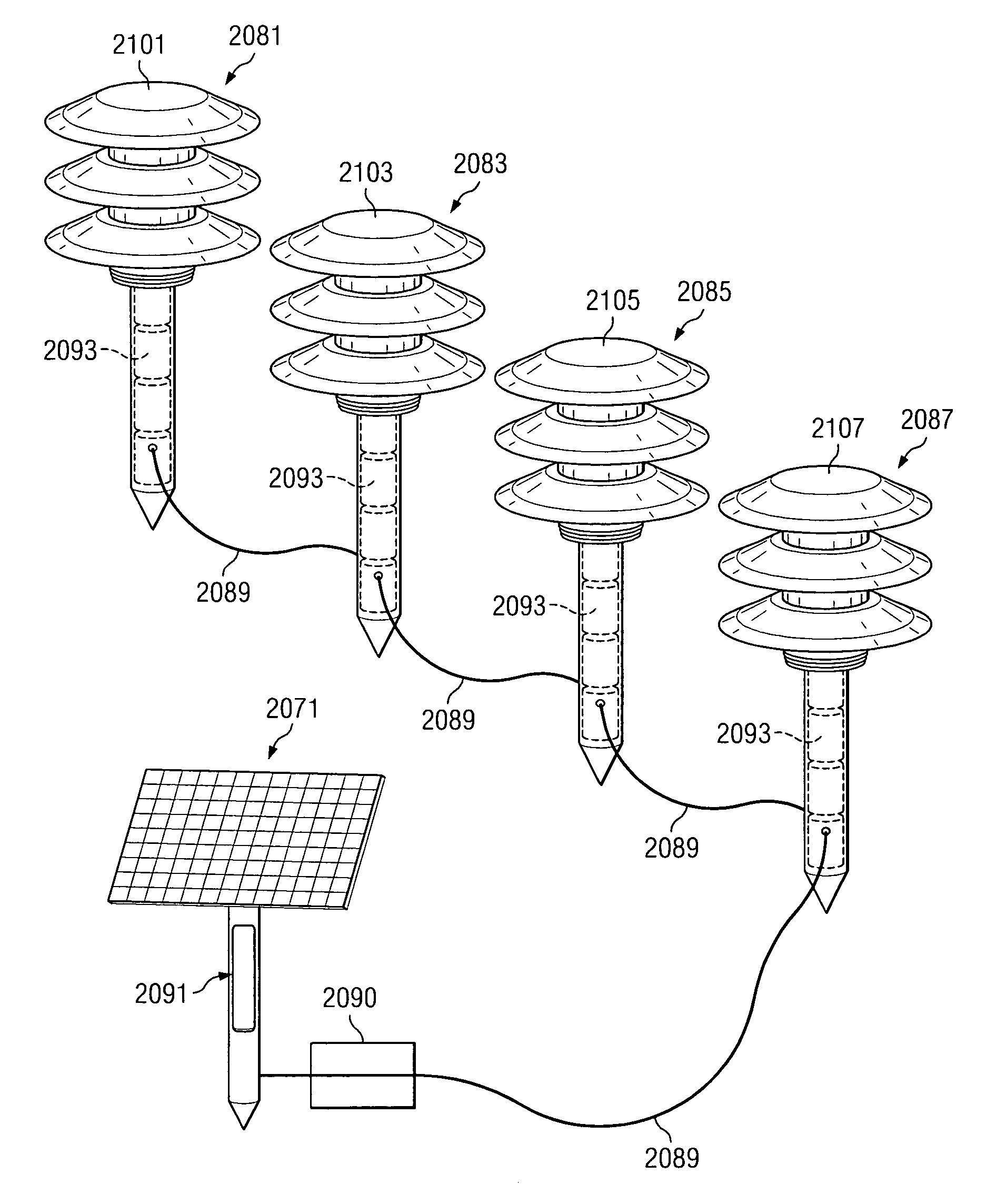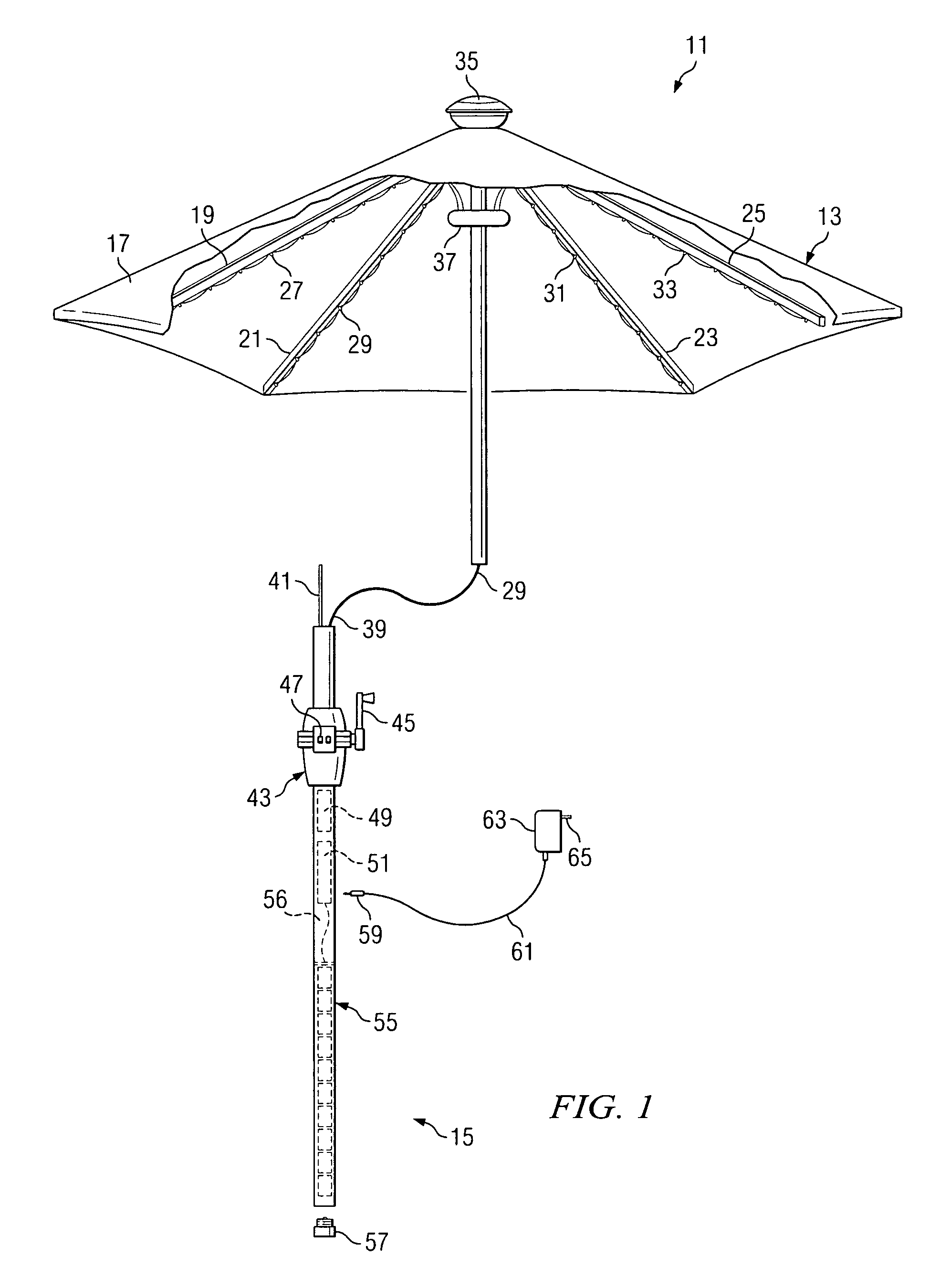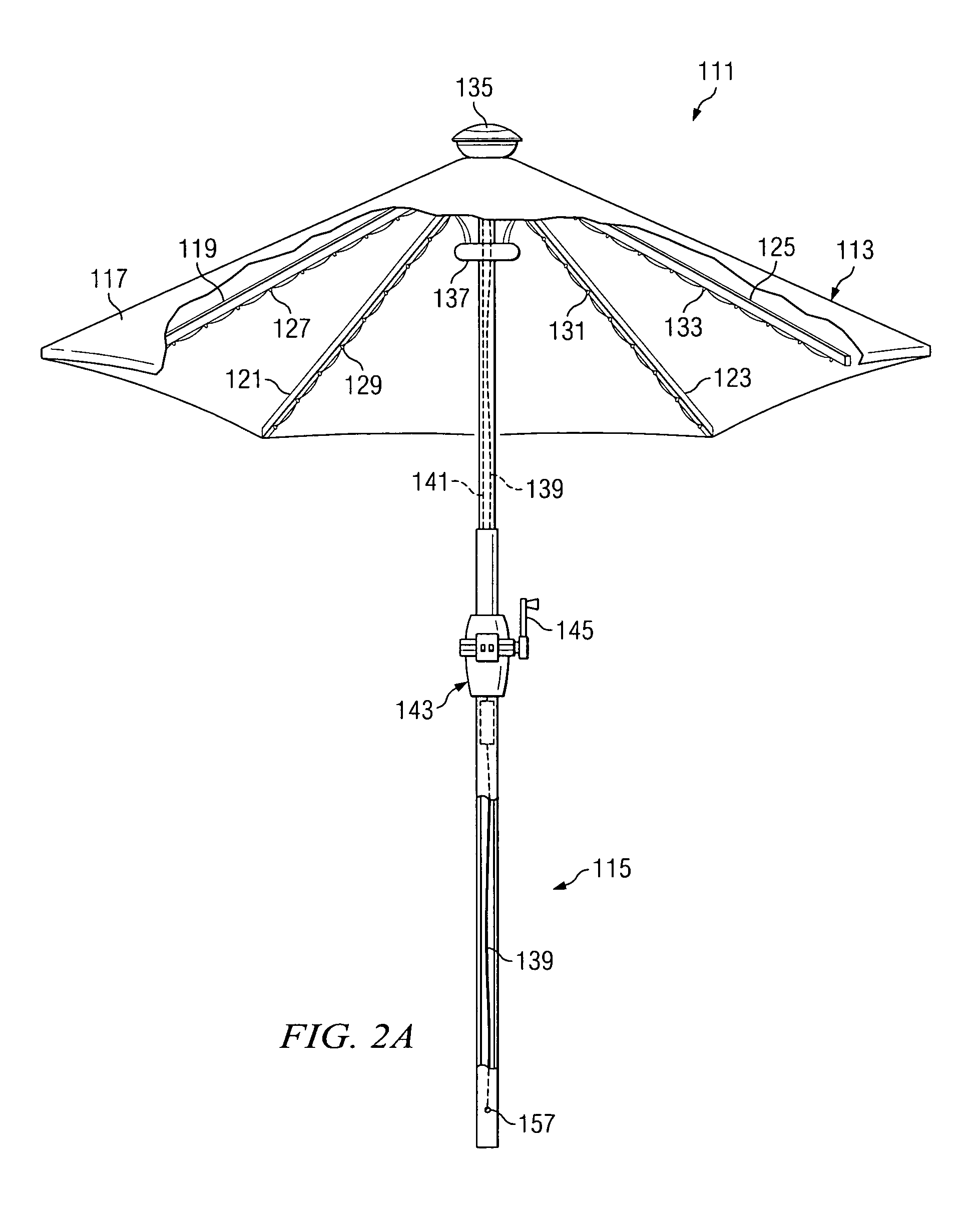Outdoor lighting system
a technology for outdoor lighting and outdoor lighting, which is applied in the field of outdoor landscape lighting, can solve the problems of low-voltage lighting systems, inability to utilize remote locations away from an ac outlet, and extremely limited size and number of rechargeable batteries, and achieves low power consumption, not generating much heat, and high light intensity output.
- Summary
- Abstract
- Description
- Claims
- Application Information
AI Technical Summary
Benefits of technology
Problems solved by technology
Method used
Image
Examples
first embodiment
[0036]FIG. 1 is a view of the present invention. It is directed to an improved umbrella 11 which includes an integral lighted system and a motorized retraction system which allows one to open and close the umbrella canopy through the push of a button. Preferably, the lighting system utilizes a cold cathode ray tube which will be described in greater detail below. As is shown in FIG. 1, improved umbrella 11 includes an umbrella portion 13 and a pole portion 15. The view of FIG. 1 does not include the view of a base member which is typical or conventional for use with umbrellas. The other embodiments show a variety of conventional and novel base members, any of which can be utilized with the embodiment of FIG. 1. Alternatively, the embodiment of FIG. 1 (as well as the other embodiments) can be utilized with little or no base member whatsoever provided that there is a table with a center aperture adapted in size and shape to receive the pole portion 15 of the improved umbrella 11. In o...
third embodiment
[0047]As is shown in FIG. 3A, an improved umbrella 211 includes an umbrella portion 213 and a pole portion 215. Umbrella 211 includes a canopy 217 that can be opened and closed. Umbrella 211 further includes a plurality of ribs 219, 221, 223, and 225 that carry a number of light strands 227, 229, 231, and 233. Light strands 227, 229, 231, and 233 each contain a number of small cold cathode ray tube bulbs and associated wiring. A solar cell 235 is carried at upper cap portion of the improved umbrella 211. Solar cell 235 is provided to provide a trickle charge to rechargeable batteries 277 associated with the lighted umbrella. As is shown, a wiring ring 237 is provided to route wiring 239 into the hollow central portion of the stand portion 215. As in the previous embodiments, a cable system 241 is also routed through the hollow central portion of stand portion 215 and is utilized to open and close the umbrella canopy 217. A pulley system 243 and a crank 245 are provided to allow the ...
fourth embodiment
[0050]FIG. 4A depicts a fourth embodiment in which the lighting elements are recessed into a rib member, such as rib member 301. FIG. 4A is a fragmentary and sectional view of a rib 301. As is shown, a cavity 303 is formed within rib 301 and adapted to receive and hold light bulb 307. A translucent material 305 is provided to cover the cavity 303 and an array of bulbs 307 is maintained within the cavity 303 along the length of rib 301. According to the preferred embodiment, bulb 307 is a cold cathode ray tube bulb. In practice, there may be many bulbs 307 extending along the length of rib 301 to illuminate the area under the umbrella. As is shown, a wiring cavity 309 is provided which joins the cavity 303. Wiring 311 is passed through this wiring cavity 309 and provides a circuit for the plurality of bulbs 307 carried by rib 301. The translucent material extends along the entire length of the cavity 303 of rib 301. The result is a recessed lighting that is carried entirely within th...
PUM
 Login to View More
Login to View More Abstract
Description
Claims
Application Information
 Login to View More
Login to View More - R&D
- Intellectual Property
- Life Sciences
- Materials
- Tech Scout
- Unparalleled Data Quality
- Higher Quality Content
- 60% Fewer Hallucinations
Browse by: Latest US Patents, China's latest patents, Technical Efficacy Thesaurus, Application Domain, Technology Topic, Popular Technical Reports.
© 2025 PatSnap. All rights reserved.Legal|Privacy policy|Modern Slavery Act Transparency Statement|Sitemap|About US| Contact US: help@patsnap.com



